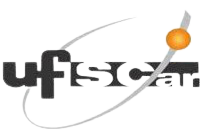Anne Sullivan, Anastasia Salter
Rationale
In this piece, an grammar system (created by the artists with Tracery, Kate Compton’s tool for generative text structures) uses identified “gendered” terminology to generate short poetic works. These short texts have been curated by the artists and then used as input for a text-to-art AI to generate fantastical paintings. Supporting Safiya Noble’s claims in Algorithms of Oppression and the many critiques of AI bias that have raised similar concerns, the work invites viewers into a better understanding of machine learning through creative visualization, these pieces are able to create visualizations of the systemic gender representations and biases embedded within the data and code.
The exhibit consists of two elements: the poetic Tracery generator, which runs in the browser live to create new poetics as shown above; and the pre-generated illustrated poems, which cycle through demonstrating the visualization of the post-anthropocene poetics using Disco Diffusion, which builds on human creativity and thus inevitably “dreams” through a gendered lens. These generated imagines demonstrate how the visual rhetorics of existing work are embedded into every iteration of our machine learning co-creation, as choices as seemingly neutral as landscape or portrait are loaded in their influence on the outcome.
About the Author(s):
Anastasia Salter is an associate professor of English at the University of Central Florida, and author most recently of Playful Pedagogy in the Pandemic: Pivoting to Games-Based Learning (with Emily Johnson, Routledge 2022) and Twining: Critical and Creative Approaches to Hypertext Narratives (with Stuart Moulthrop, Amherst College 2021). They serve as Treasure on the Electronic Literature Organization Board of directors.
Anne Sullivan is an Assistant Professor in the School of Literature, Media, and Communication and Director of the StoryCraft Research Lab at Georgia Tech. Her research focuses on designing, building, and understanding intersectional and humanistic futures of artificial intelligence. She uses this lens to critically examine and create playful, storied interactive experiences for education, craft, and games.
Affiliation
University of Central Florida
Contact(s)
anastasia.salter@gmail.com
Website or live experience
https://selfloud.net/post_anthropocene/













